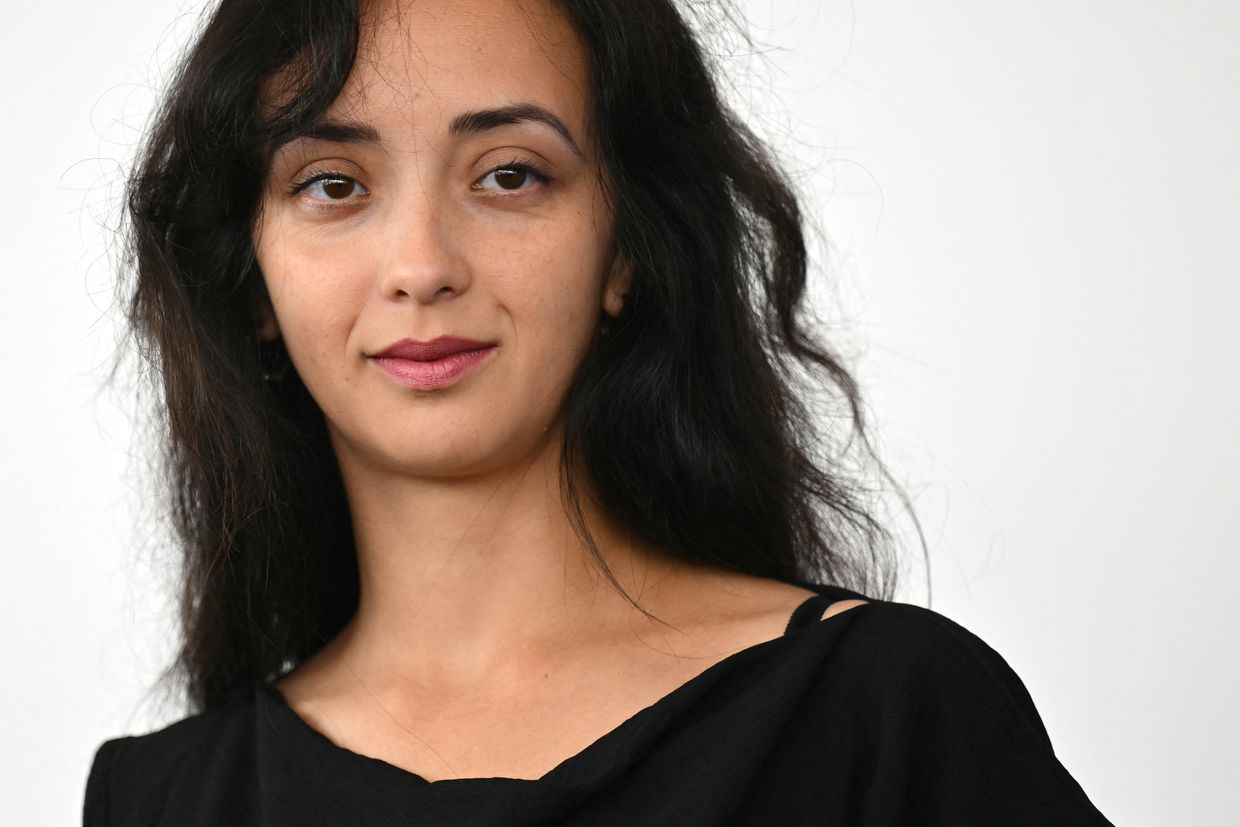Toronto Film Festival resumes ‘Russians at War’ screening, ignoring widespread criticism

After announcing on Sept. 12 that screenings of the controversial documentary “Russians at War” would be paused due to “significant threats to festival operations and public safety,” the film is set to return to the Toronto International Film Festival’s lineup on Sept. 17.
The Toronto International Film Festival (TIFF) runs from Sept. 6 to Sept. 15, so the organizers appear to be holding two special screenings of the film on Sept. 17 outside of the official program.
The film was initially pulled in response to significant public backlash both within Canada and internationally, as well as protests held on site at the festival. The Ukrainian Canadian Congress, which spearheaded the initial protests, has pledged to continue their efforts following TIFF's ongoing commitment to showing the film.
The Toronto police had not been “aware of any active threats” that would have led the festival to initially limit the screenings of the film, a spokesperson told Canadian media on Sept. 12.
Canadian-Russian director Anastasia Trofimova’s documentary has faced criticism for what many perceive as an attempt to whitewash the Russian soldiers involved in Russia's war of aggression against Ukraine. During her press tour, Trofimova emphasized that the soldiers featured in her film were "just ordinary guys" and claimed she did not witness any war crimes during her time with them.
Canadian media coverage of the documentary has largely echoed these sentiments, framing the soldiers as mere pawns in Russian President Vladimir Putin's war. This conclusion has only been met with more backlash given that many of the soldiers portrayed in “Russians at War” are contract soldiers and therefore chose to participate in the invasion of a sovereign state voluntarily.
The organizers of TIFF have claimed in “no way should this film be considered Russian propaganda.”
But critics of the documentary who saw it have noted several issues, perhaps the biggest being Trofimova's omission of the Ukrainian perspective – those defending themselves against an invasion. The documentary also lacks a concrete counter-narrative to Russian propaganda, fails to address documented Russian war crimes, and does not offer a definitive critique of Putin's regime.

As Dutch film critic Hugo Emmerzael told the Kyiv Independent, “By blurring the boundaries between the capturing of reality at the front and constructing a narrative at this very same site of conflict, the film becomes an extension of the war apparatus it pretends to examine.” Trofimova also admitted to violating Ukraine’s territorial integrity herself by crossing illegally into the country through Russia, telling the Canadian press, “I’m a citizen of Russia and by Russia standards, this is now considered to be Russian territory, you can just pass through there if you have your passport.”
"The film becomes an extension of the war apparatus it pretends to examine."
Trofimova has also claimed that she filmed on the front line without permission from Russia’s Defense Ministry.
These ethical issues regarding how she filmed the documentary are compounded by the fact that it was partly financed by public Canadian funds. Since the start of Russia’s full-scale war, Canada has been a significant ally of Ukraine, providing the country with over $8 billion in military, financial, and humanitarian aid.
Some of the strongest criticism against the film has been made in comments to Russian independent media by Ukrainians and Russians in exile.
“You know, it’s a trick of documentary filmmaking – when you choose an object to film, and when you go with a camera to one side, and you film the ‘exact truth’ of the trenches which is ‘obscured by the fog of war,’ willingly or unwillingly, you choose a side,” Ukrainian film producer Alexander Rodnyansky, who worked in Russia for decades and fled after the full-scale war, said in an interview on Sept. 10.
Rodnyansky noted that while Russian soldiers in the film sense that "something isn't right" with their actions in Ukraine, they continue to echo the same propaganda narratives broadcasted on Russian state-controlled television.
“The main thing is that I don’t believe she worked there (on the front line) without the agreement of the Russian Defense Ministry. To spend (that amount of time) with a battalion is not possible. We understand very well how Russia is organized, and more so, she was wearing the Russian military uniform. It goes against all the rules of journalism.”
Critics also noted the subtleties in the film which Westerners who do not speak Russian and are unfamiliar with the history of the region might miss.
In her review for Novaya Gazeta Europa, Russian film critic Irina Karpova highlighted the dissonance in Trofimova's voiceover with her emphasis on the "a" in "Ukrainian," which evokes the Russian word "krai," meaning "edge," and implies linguistically that Ukraine is the borderland of Russia. This is a common mispronunciation among Russian speakers.

Karpova also questioned the achieved outcome of the film.
“Trofimova tries to see the humanity in Russian soldiers, but the footage she captures seems to confirm, rather than refute, the portrayal of Russian soldiers as depicted by YouTube channels like those of Michael Nacke or Vladimir Milov. Even fascists suffer too,” Karpova wrote.
Ukrainian-Russian film director Vitaly Mansky, who moved from Russia to Latvia in 2014, told TV Rain that the film could only be shown in the same vein as the work of Nazi propagandist Leni Riefenstahl at this year’s Venice Film Festival, with one goal, to show that she wasn’t an independent documentarian.
“It’s a very professionally made film, but in professional language, it’s easy to expose (its problems). If the author of the film says supporting only one side of the film stops the war from ending, here it is very clear that the author is on the side of the heroes of her film,” Mansky said.
A frequently raised concern regarding Trofimova is that several of her earlier documentaries were produced by RT Documentary, a Russian state-owned channel. Some critics continue to question her potential ties to Russia's war apparatus, with many suggesting that these connections may have influenced her editorial decisions in filmmaking.
Trofimova herself brushed off these concerns, saying in an interview with the Globe and Mail that when “the relatively liberal atmosphere in which we were working started to change” she left RT for the Canadian Broadcasting Corporation (CBC).
This period of a “relatively liberal atmosphere” took place against the backdrop of Russia’s illegal annexation of the Crimean Peninsula and invasion of Donetsk and Luhansk oblasts in 2014.
Yet there are instances from after the start of Russia’s full-scale war against Ukraine that provoke scrutiny.
In a public post on her Facebook from Jan. 4, 2023, Trofimova eulogized Kirill Romanovsky, a famous Russian war journalist with close ties to the Wagner mercenary group, which has played a huge role in Russia’s war against Ukraine. Romanovsky died under unclear circumstances in Africa, where Wagner also operates.
“In your frontline stories, there was no falsehood or that pretentious, overly subdued baritone. You were like that in everything — genuine, compassionate, and real,” Trofimova wrote, adding that he “managed to do something very right in this life.”
Romanovsky’s book “Eight Years with Wagner” includes interviews with members of the mercenary group. Wagner boss Yevgeny Prigozhin, before his own death in 2023, called Romanovsky his “comrade” and praised him for “doing a lot” for Russia.
Sean Farnel, who has identified himself as a consulting producer on the documentary “Russians at War,” has criticized people online who spoke out against the film and Trofimova’s background making documentaries for Russian state-owned media.
Farnel told one user on X, formerly known as Twitter, that people were “obsessed” with this part of her filmography, failing to acknowledge why it is highly problematic.
Note from the author:
Hi, this is Kate Tsurkan, sharing an important culture-related story from Ukraine. It's honestly a bit maddening to see that this film about Russian soldiers got made in the first place and that some film critics are defending it. But if you talk to people who actually suffer firsthand from Russia's war, and their allies, you hear entirely different feedback. It's important to note the difference. If you like reading such content, please consider supporting The Kyiv Independent.












